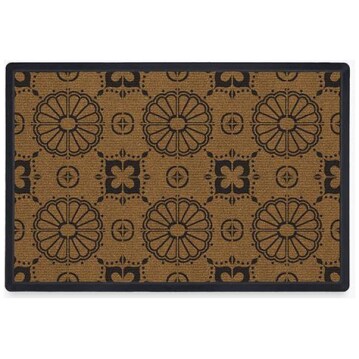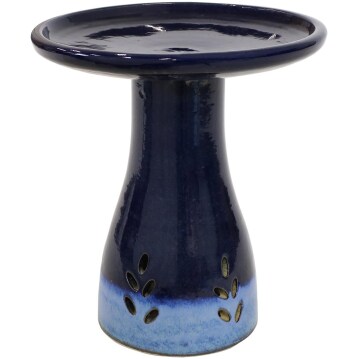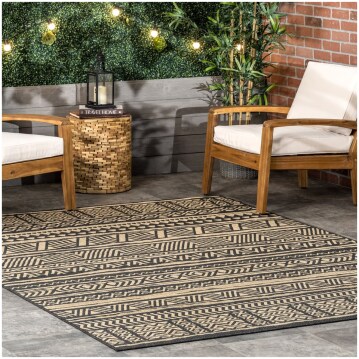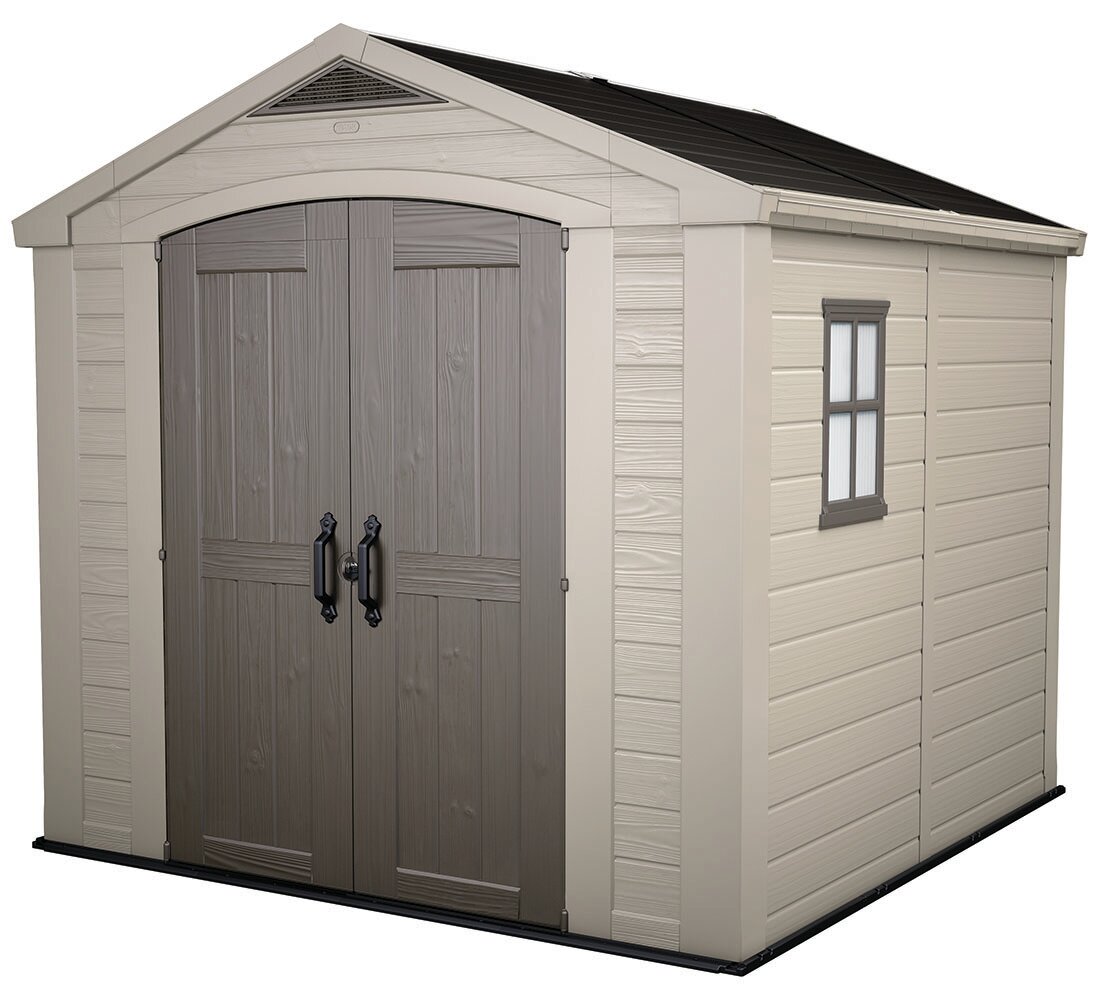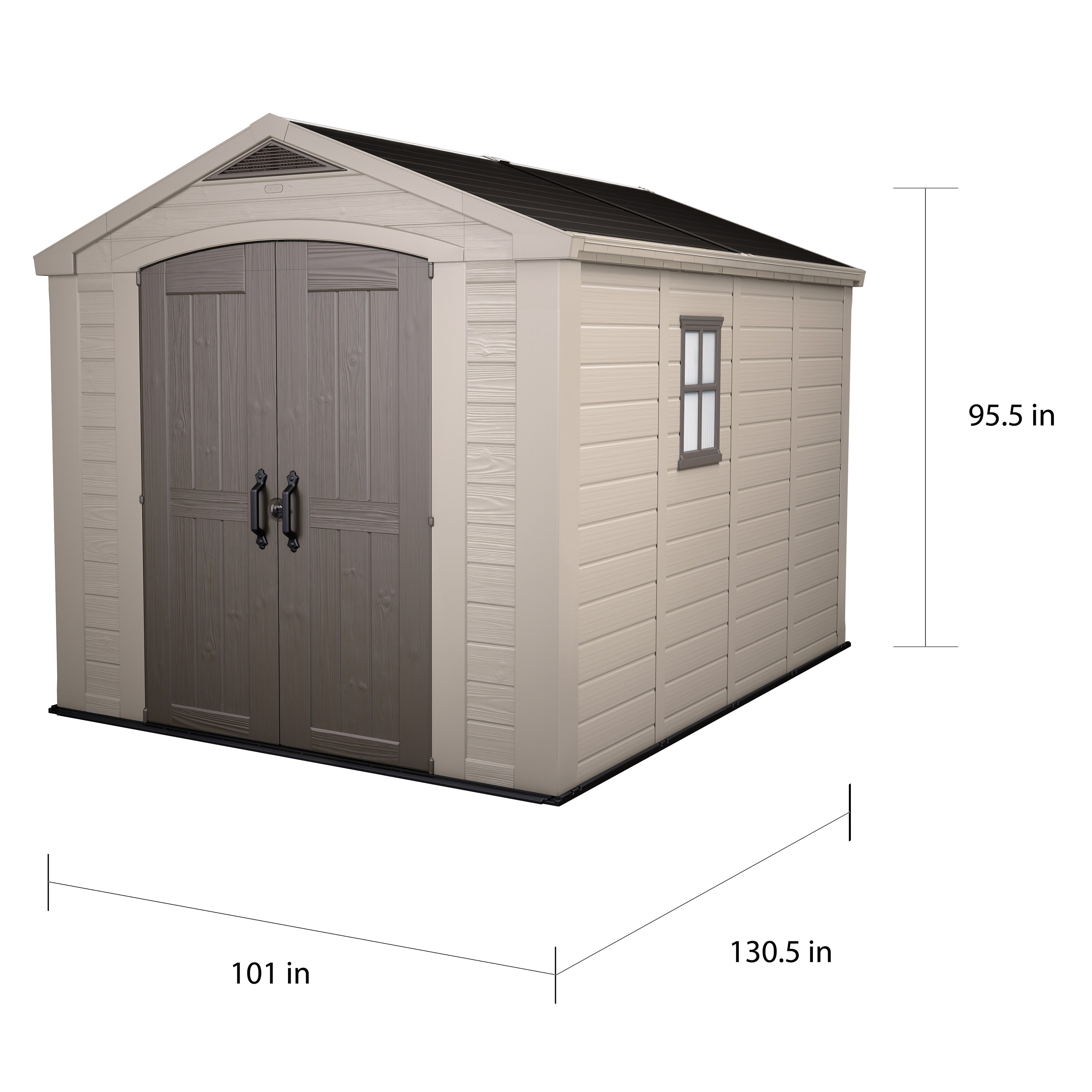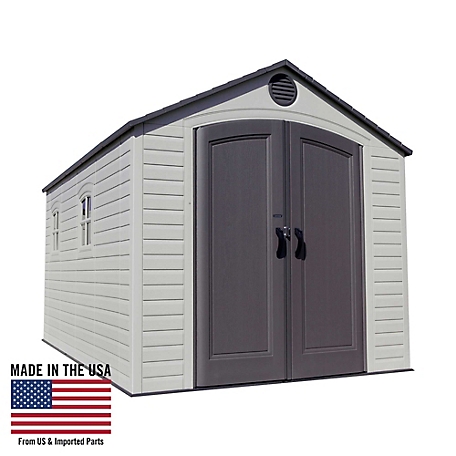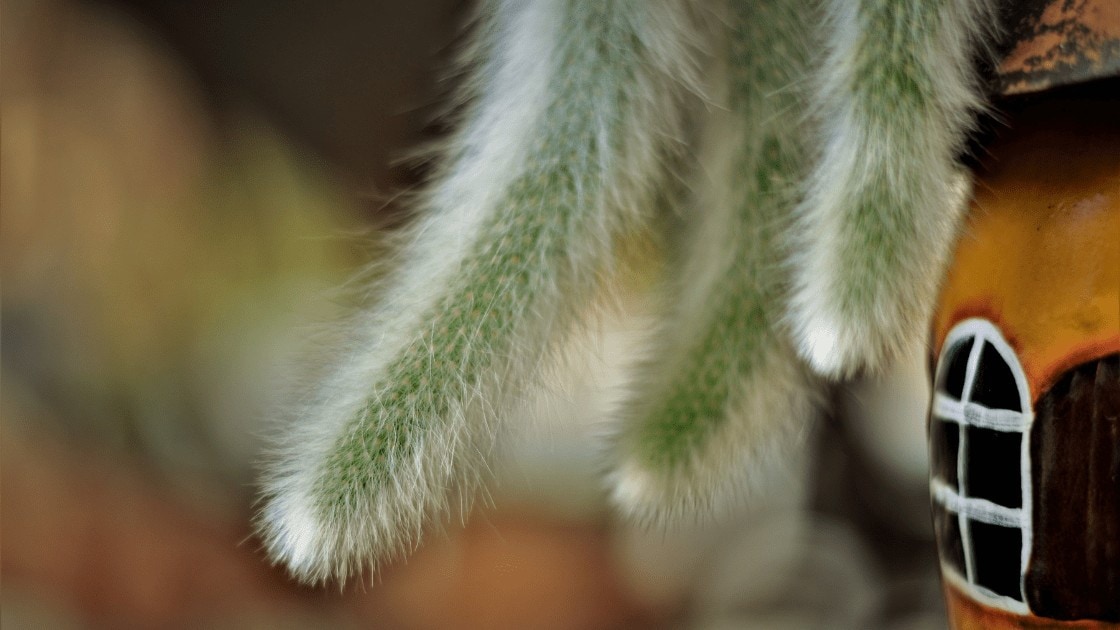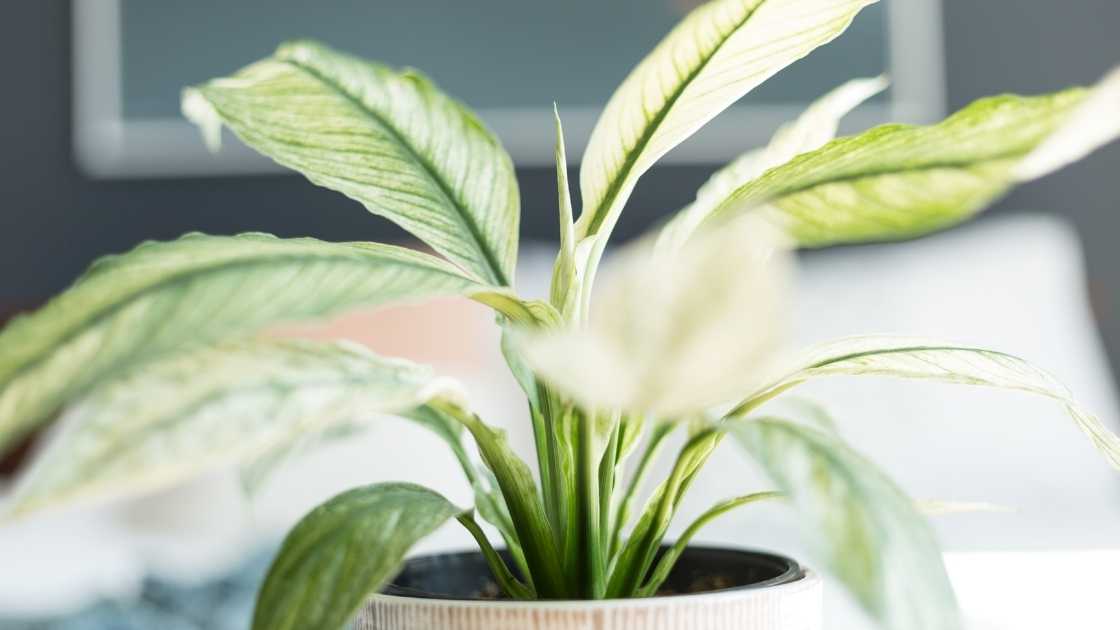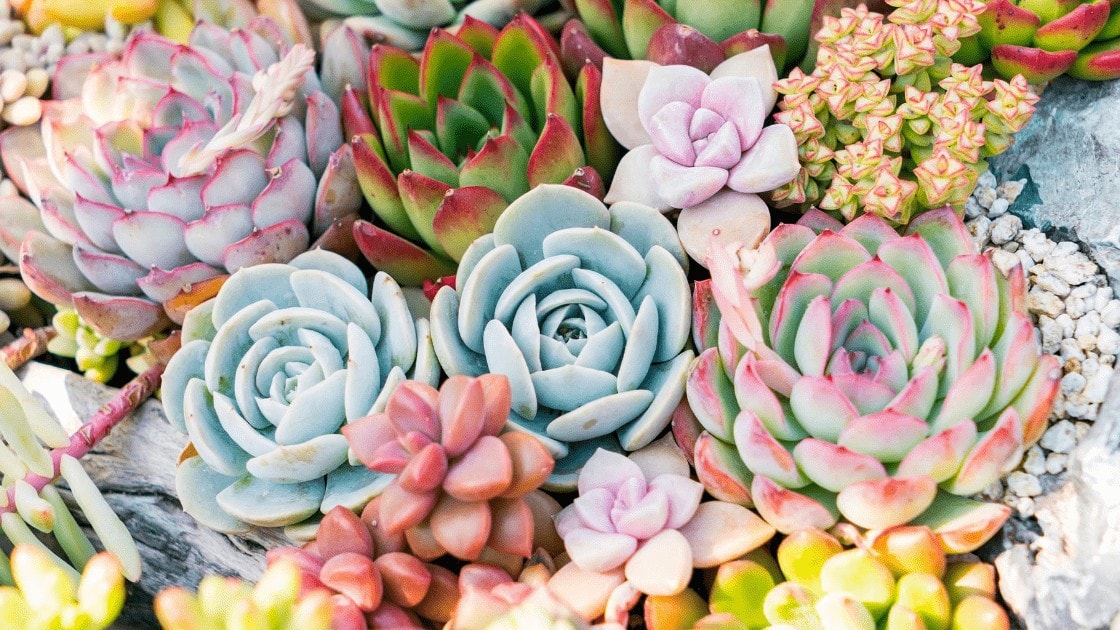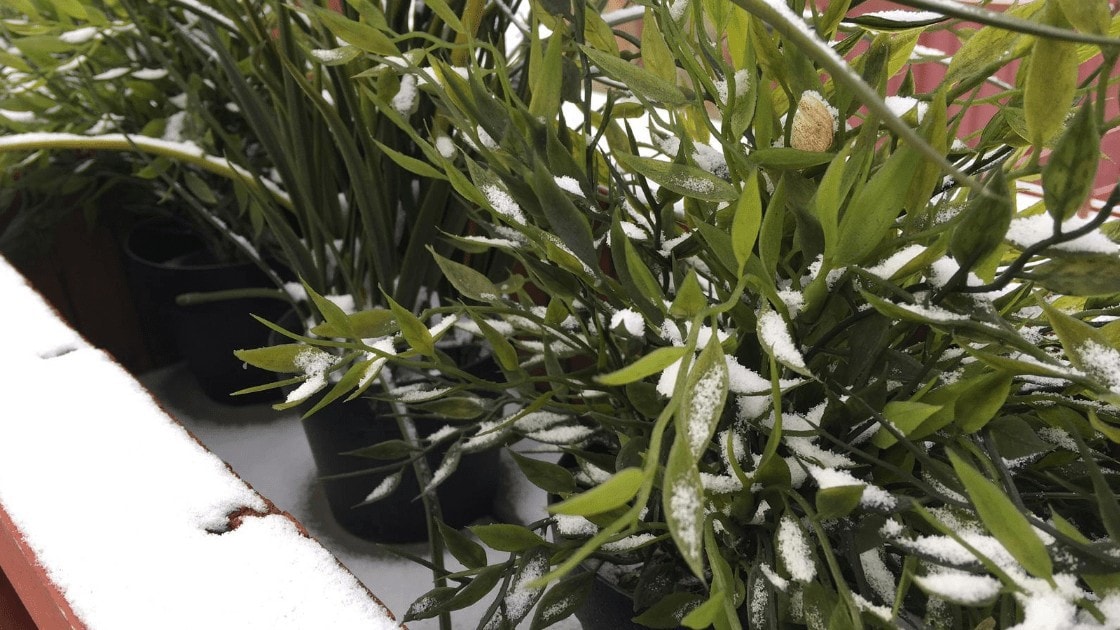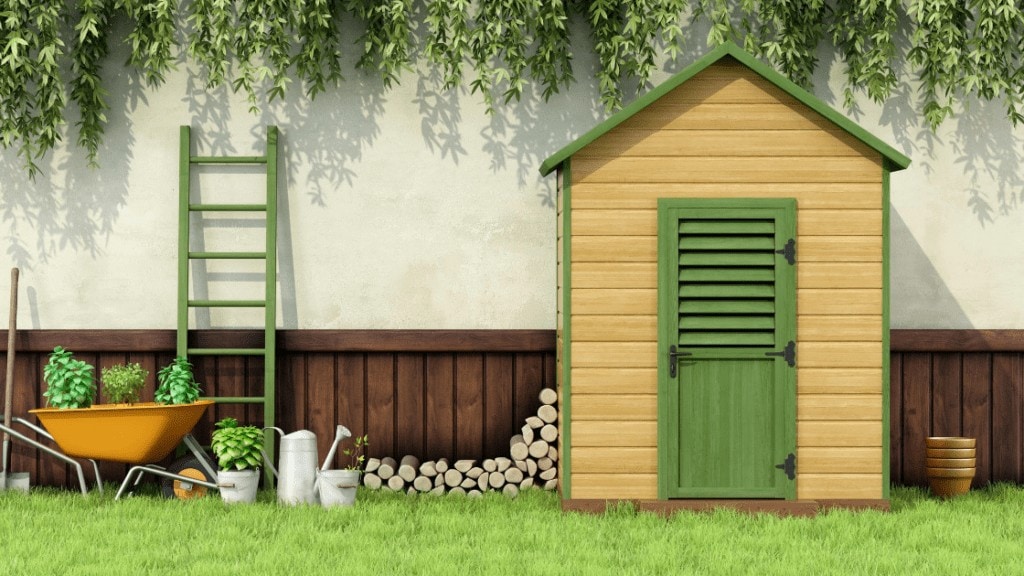
While there are many different types of outdoor garden sheds on the market, the main purpose is to store tools and other outdoor accessories. When it come to choosing the right type, it usually depends on the weather you reside in, usage, customization, or simply complementing the style of your home. In this article we will discuss the three basic types of garden sheds, and help you find what your looking for.
Purpose of Outdoor Garden Sheds
As any gardener knows, it takes a lot of specialized garden tools and supplies, including trowels, gloves, spades, shears, and more to do the cultivating, weeding, transplanting, and pruning that plants need. Garden sheds are almost an inseparable part of gardening since they serve as a storage space for all your lawn-care supplies because nobody wants to see a garden with stuff scattered around on the garden.
It can also double up as a place where you can grow your vegetables or flowers when winter months come, and you still want to keep your gardening hobby going all year long, no matter how chilly the weather might be. Aside from its operational benefits, it can also improve the aesthetic appeal of your entire property by serving as the focal point of your garden.
Browse our Affiliate Products
Types of Garden Sheds
Every type of shed has something different to offer, so it is important to assess each of their pros and cons in order to find the right one that fits your gardening needs. In this section, we will talk about the three (3) major types of sheds, their benefits, as well as their drawbacks.
Also, with all sheds, its a place to store all your tools. If your a beginner a gardening, check out this article: What Tools Should a Beginner Gardener Have?
Wooden Garden Sheds
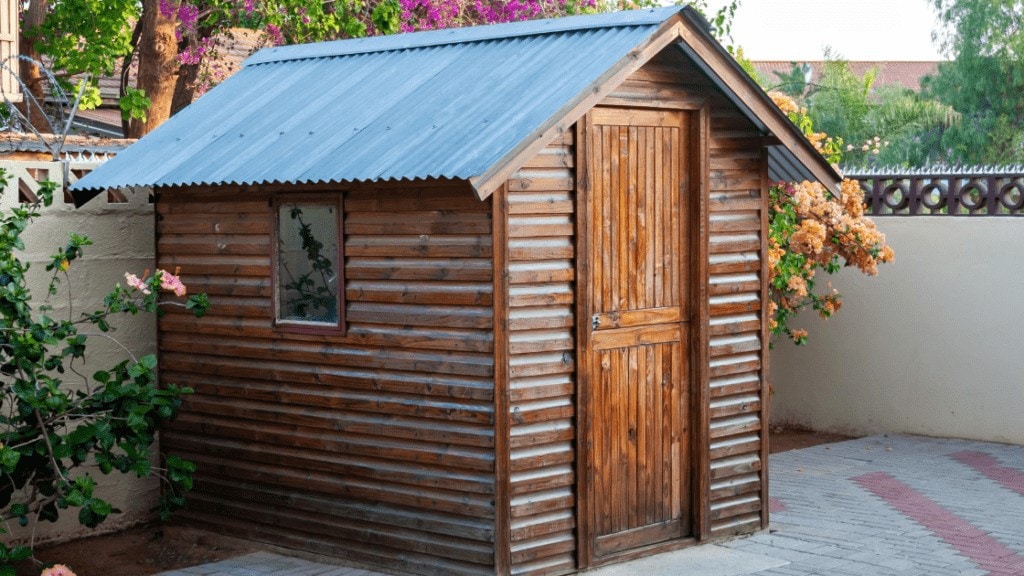
A wooden shed is the most traditional type of garden shed and it can be customized to create a specific size or shape, depending on your personal preference. This type of shed can also be painted into any color and decorated with flower boxes or cupolas. You can also easily customize the inner parts of the shed by placing cabinets and shelves on the walls for more storage spaces and electricity. This is where wooden sheds can be more versatile.
The most common types of wood for wooden sheds are cedar, and redwood. Both are viewed as the best woods for garden sheds because of their toughness and ability to complement the appearance of any lawn, and serve as an enjoyable place to store yard tools, lawn mower, and all those outdoor equipment.
Pros:
Generally, wooden sheds are the easiest type of shed to install in the garden, and with just the help of one or two people, you can set up a wooden shed within a matter of hours. They are also exceptionally durable and they can withstand nearly any kind of weather if quality materials are used and if it is maintained properly over the years. Moreover, wooden sheds can literally transform the overall ambiance of your lawn and make it look more charming and quaint.
Cons:
However, wooden sheds are considerably more expensive than its metal or plastic counterparts. It also requires routine maintenance which includes caulking and painting due to the fact that the material is highly prone to bugs and termite damage. Furthermore, if the wooden shed is not adequately ventilated, its flooring may be subject to rotting.
To view our affiliate category of outdoor sheds, check out these products. Sheds
Metal Garden Shed
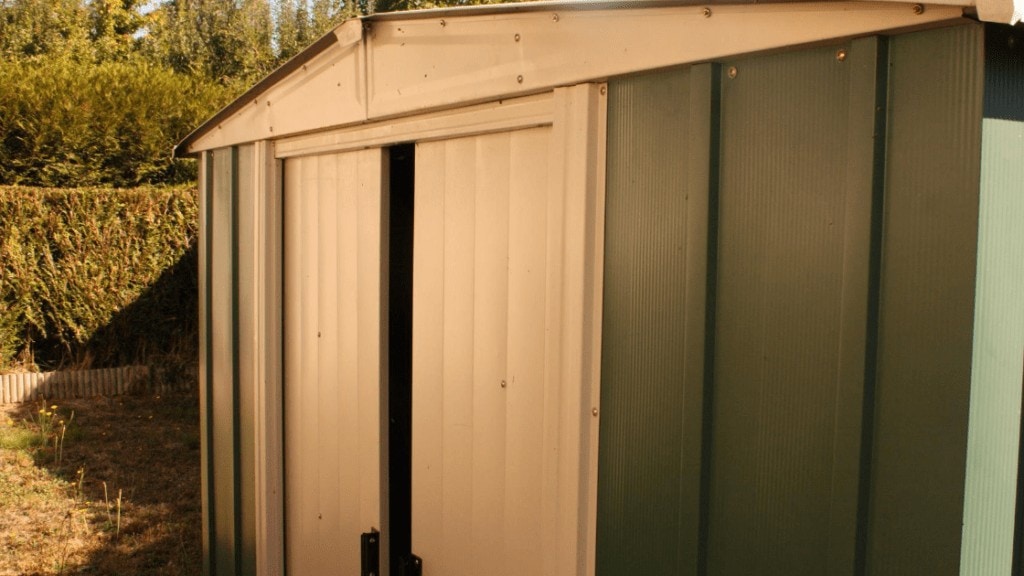
Metal sheds have been popular for a long time, but it is important to consider the details of the metals that the manufacturers are offering because some of them vary in quality and price range.
Most manufacturers offer metal storage units that are designed with a weatherproof coating made of galvanized steel and polyester finish paint. Furthermore, thanks to the modern innovation in metal fabrication, you can now choose colors and siding options that will keep the shed in harmony with your home and landscape. The installation process may take at least an hour or more depending on its size.
Pros:
The most significant advantage of utilizing metal sheds is that they are generally cheaper than their wooden counterparts. This can be the best option for those people with tight budgets, but still don’t want to compromise on their garden storage. This surprisingly light material is highly durable and not prone to any termite damage, which means you are not obliged to undertake routine maintenance.
Another perceivable benefit of using metal sheds is that every component can be recycled and provide many green benefits. Also, most metal manufacturers provide a 10 to 20 year warranty that ensures the life-long quality of this material.
Cons:
Although metal sheds are extremely durable and warranty-covered, they are still susceptible to rust and corrosion when exposed to certain elements. Using sealant paint on the metal can help to protect the material from rust, but not indefinitely.
Unlike wooden sheds, this type of shed can be difficult to modify and attaching shelves and hooks may be difficult. And not to mention, cheap metal garden sheds tend to be unattractive and may ruin the overall charm of your garden and may be difficult to customize.
Plastic Garden Sheds
Plastic sheds used to be viewed as the poor relations of wooden and metal sheds, but thanks to the technological advancements, this is no longer the case. Over recent years, plastic sheds have become an increasingly viable alternative to those made traditionally with wood or the low maintenance option of metal sheds. Plastic sheds can either be used indoor or outdoor as a storage for all kinds of tools, and usually come with shelves and pockets for easy organization.
Pros:
Compared to its other counterparts, plastic sheds do not rot or rust and they generally require no maintenance to enjoy a long life either. Moreover, in contrast to what most people think, plastic sheds are exceptionally strong which makes it a good value for money considering its cheap market price.
Many owners speak of how their plastic sheds have been around for years and still look good, with occasional rinse down using a garden hose. Plastic sheds are also easy to put together and require less manpower, unlike when assembling a wooden or metal shed.
Cons:
Nonetheless, just like the wooden and metal sheds, plastic sheds also have some drawbacks that you need to know about prior to purchase. One of the most prevalent is the fact that they are susceptible to sun or UV damage over time. It is also not nearly as sturdy compared to its counterparts, which means that it may collapse or cave in high winds and heavy storms.
Space Considerations & D.I.Y.
In order to set up an elegant building that fits well with your garden, it is important to carefully measure and determine the size of your lawn area where you want the shed to be placed. Make sure that there are sufficient space that is big enough to fit your garden shed, and you can also adjust the size of your shed if you realize that your lawn is not big enough.
One helpful tip is to figure out how many square feet of area you need for the shed as a whole, and divide it by the space you need for storage, working desk, etc. and it is also important to keep in mind that you will also need some extra space outside or around the shed. Small sheds of about 1.2m x 1.8m are ideal for small gardens, but they tend to fill up easily–a bike and a lawn mower are about their storage capacity.
Nonetheless, if you consider yourself as a handy person, you may wish to save money and order an outdoor storage building kit that comes with assembly instruction, or you can also make one from scratch if you are confident with your carpentry skills and you have the right tools. If you prefer to build your own shed, you will be needing to get building permission on your property from your local building department and submit a set of shed plans.
The basic tools that you’ll be needing for a D.I.Y. shed are saw, hammer, screwdriver, framing square, measuring tape, stakes, line and level. You may also have to consider the foundation or the footing for your garden shed, which can either be a layer of poured concrete, compactable gravel, or wooden skids for the ease of transportation.
Final Thoughts
The truth of the matter is, no garden would ever be complete without a garden shed. A well-designed lawn storage for your garden tools and supplies will not only declutter your backyard, but it will also provide an appropriate work space as well as a beautiful focal point for your property.
Having an additional storage space in your home is expected to improve the overall value of your home, since extra storage is always in the top priority list of home buyers. The most common types of garden sheds are wooden, metal, and plastic. Each type has its own advantages and disadvantages that a homeowner has to consider before deciding to make a purchase.
Depending on the purpose you have in mind for your shed, it is important to carefully weigh each material’s pros and cons as well as its durability, portability, and price tag before purchasing. Another option is to build one from the ground up with the help of your carpentry skills and some basic supplies. Although you may have to spend a bit more time and effort, this can be an optimal option for handy people. But if you’re not that great with D.I.Y. projects, you can always choose among the plenty options of garden sheds at stores that are affordable as much as they’re functional and fashionable.
